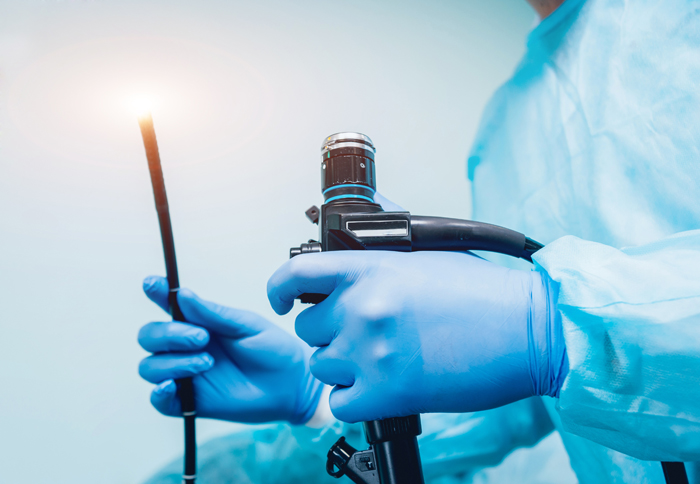Urology - Minimally Invasive Urological Treatment
In minimally invasive urological treatment, experts use a variety of techniques to cause less harm to the body than what is expected in an open surgery. In general, a minimally invasive medical procedure is associated with less pain, a shorter hospital stay and fewer complications.
To know more, consult urology doctors near you or visit a urology hospital near you.
What is Minimally Invasive Urological Treatment?
Minimally invasive medical treatments provide a doctor with access to inner organs and tissues without the need for a large cut. Minimally invasive urological treatment also enables the expert to observe the area being referred to from afar, typically to confirm a diagnosis or perform a biopsy, and then to manage the condition following confirmation.
In minimally invasive urological treatment, experts use a variety of techniques to work with less injury to the body than in open surgery. In general, a minimally invasive urological treatment is associated with less agony, a shorter hospital stay and fewer hassles.

Who qualifies for Minimally Invasive Urological Treatment?
Minimally invasive urological surgery is the most recent advancement in diagnostic and treatment techniques for patients suffering from illnesses or diseases of the kidneys, bladder or prostate. Your doctor will study your symptoms and medical reports to ensure this is the right treatment for you.
Request an appointment at Apollo Spectra Hospitals, Chirag Enclave, New Delhi.
Call 1860 500 2244 to book an appointment.
Why is Minimally Invasive Urological Treatment conducted?
Minimally invasive urological treatment lessens cautious harm to the body, resulting in shorter emergency clinic visits, quicker recuperation durations, reduced startling, discomfort, contamination risk and complexities. MIS also enables an expert to see the area being referred to from afar, which is commonly used to confirm a diagnosis or perform a biopsy, and then treat the condition.
What are the different types of Minimally Invasive Urological Treatment?
Minimally invasive urological treatments include:
- Robotic aided prostatectomy
This nerve-saving treatment for prostate cancer can preserve function and bladder control. - Laparoscopic nephrectomy
Laparoscopic nephrectomy enables doctors to remove all or portions of the kidney with a small incision rather than a large open cut. - Percutaneous nephrolithotomy
This extremely specialized technique allows experts to remove large kidney stones through a keyhole incision. They use high-frequency sound waves to separate the kidney stones and suction to quickly remove the pieces. - Prostate brachytherapy
Prostate brachytherapy is an effective treatment for prostate cancer. Seed inserts deliver a high dose of radiation to a tumor while minimizing the risk of damage to nearby tissue.
What are the benefits of Minimally Invasive Urological Treatment?
Patients frequently respond extremely well to minimally invasive urological treatments, and the use of minimally invasive urological treatments has increased substantially in the past 20 years. This is mostly because minimally invasive urological treatments provide better outcomes than traditional medical procedures, as well as cause less harm to patients.
What are the risks of Minimally Invasive Urological Treatment?
All medical treatments include some risks and MIS is no exception. The risks of any medical operation include organ or tissue damage, blood loss, agony, scarring and adverse reactions to anesthesia.
Most patients are candidates for minimally invasive medical treatment; nevertheless, tumor size or area may necessitate a traditional approach.
Using mechanical technology to perform a medical operation is roughly as safe as other well-known precautionary measures. This careful innovation has been supported by the FDA since 2005.
No, the expert is in charge of the entire structure throughout the approach. Although the robot allows the specialist to make more precise hand and wrist movements, it cannot be programmed to perform a medical operation on its own. All movements should be carried out by a qualified professional who has been well trained and instructed in mechanical technology.
Our Doctors
DR. VINOD KUMAR RAJORIA
MBBS, MS (General Su...
| Experience | : | 32 Years Experience |
|---|---|---|
| Speciality | : | Neurology & Neuro Su... | Location | : | Chirag Enclave |
| Timings | : | Mon to Sat : 4:00 PM... |
DR. S K PAL
MBBS,MS, M.Ch...
| Experience | : | 30 Years Experience |
|---|---|---|
| Speciality | : | Urology... | Location | : | Chirag Enclave |
| Timings | : | Tue, Thu: 1pm to 2pm... |
DR. TANUJ PAUL BHATIA
MBBS, MS, DNB...
| Experience | : | 13 Years Experience |
|---|---|---|
| Speciality | : | Urology... | Location | : | Chirag Enclave |
| Timings | : | Wed : 8:00 AM to 9:3... |
Our Top Specialities
NOTICE BOARD
CONTACT US
CONTACT US
 Book Appointment
Book Appointment





.svg)
.svg)
.svg)
.svg)








